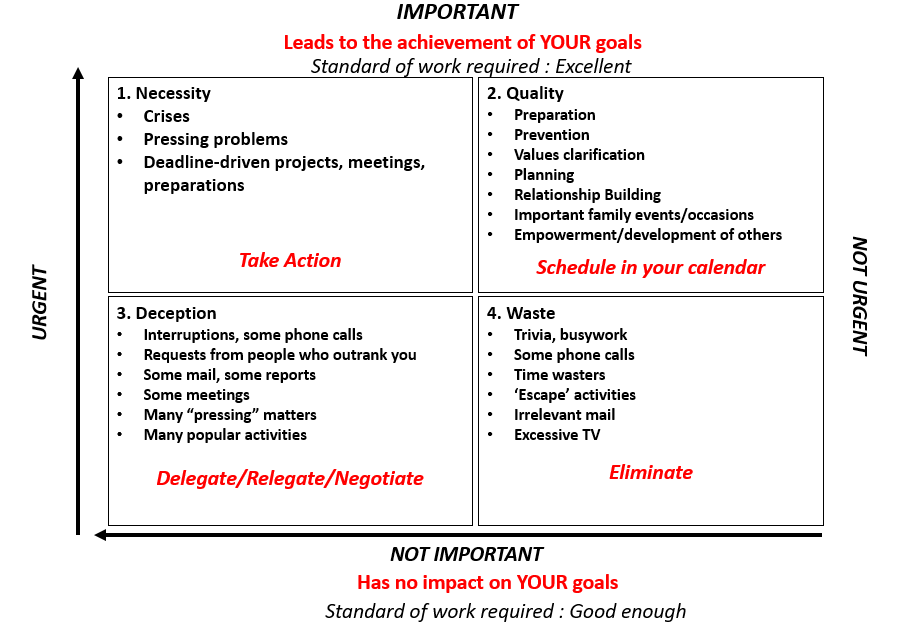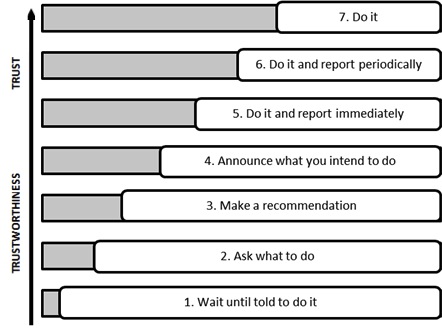Let’s look at some background. If you are noticing that a manager is underperforming, chances are this is because you have noticed that she is not delivering on a performance expectation that is perfectly clear in your mind – in other words, what she is delivering falls short of your expectations.
It has been my experience that managers have the greatest difficulty handling such issues with the managers who report to them. I think there may be some ego issues – it is difficult to acknowledge that you may have put the wrong person into the job. They may have difficulty defining what it is a manager should be doing in order to deliver on expectations. I think they may also have difficulty having these difficult conversations. They are stressful and they make you anxious. But consider this: will yelling and losing your temper change anything? No – in fact, it will probably make things worse. Will leaving well enough alone and hoping for the best work? No – and you will have the further impact of disillusioning the rest of the team with your failure to take action.
The ability to correct underperformance without using threat or fear depends on the following:
- The performance expectation must be clear in your own mind. You need to be able to describe it in clear, specific, measurable or observable terms.
- The performance expectation must be as clear in your team member’s mind as it is in yours. You must have articulated your expectations in a series of discussions with your team member, and your team member must be able to describe the following accurately:
- What must be done / what must be delivered?
- How it must be done?
- When, how often and by when it must be done?
- What must be done when it goes wrong?
- How is performance measured?
- What is the impact of falling short of expectations, and what will be expected if this happens?
- The performance expectation must be monitored regularly and the team member must be given regular feedback on her performance in comparison with the expectation.
- She needs to know where she is meeting expectations and where she is falling short.
- She needs to have the opportunity to think through and discuss the possible reasons why she is falling short.
- She needs to have the opportunity to think through and discuss what she needs/needs to do in order to bring performance back up to expectations.
- She needs to know what may happen if she continues to fall short of expectations.
- She needs to be encouraged to keep trying and be reminded that she has your support.
- You need to be sure that you have done all that can reasonably be expected in order to enable her to reach the required levels of performance:
- Have you ensured that she has the necessary skill? Have you provided training/coaching in the event that there is a skills problem?
- Have you made sure that performance to the standard is recognised and acknowledged (or is it ignored or even punished in some way)?
- Have you ensured that there are no obstacles to performance – everything that is required to do the job is in place and works (equipment and technology works and is suitable for the job, the information required is available timeously, the necessary people and other resources are available to do the work, etc.)?
- Have you given regular feedback on progress – including noticing when progress is made and saying something when there is insufficient progress?
There are some steps to follow:
- Get your mind right – do not have this conversation if you are angry and uptight. Do your preparation.
- Articulate the performance that is expected and describe how it continues to fall short.
- Remind the team member of the things you have done in order to give her the best chance to succeed.
- Ask if she thinks there is anything else you should be doing in order to enable her to succeed. Discuss this and agree if this is reasonable or not. If it is a reasonable request, agree to the action. If it is not a reasonable request, say so and give a reason.
- Clearly state that meeting the required standard of performance is non-negotiable, and the deadline by which such performance must have been achieved. Also describe what you will have to do in the event that the team member continues to fall short of expectations. This may include taking disciplinary action. Indicate your reluctance to go this route and that you hope it will not be necessary.
- Make yourself available in the event that the team member requires any further support from you.
In all of this, it is so important to remember that we are dealing with people, and compassion is key. We are living in tough times, and people are struggling with all sorts of things that we know nothing about. Discussions relating to the possibility that someone may lose their job are not to be taken lightly. While it is never a good idea to allow underperformance to run too long, it is important that you can look yourself in the mirror and know that you have done everything you can, and more, to help this person perform as required.
A word to the wise – it is preferable to have the first of these conversations as early as possible. The longer underperformance is allowed to persist, the greater the difficulty in correcting it – after all, your silence and inaction implies that the performance is okay.












 RSS Feed
RSS Feed


